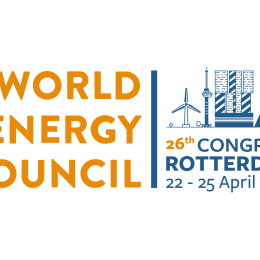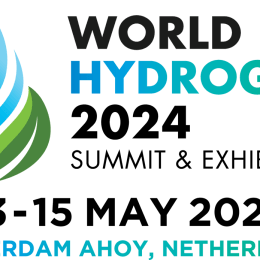Companies choose their location because of availability of talent: Rotterdam

A head start
He uses the term ‘retain’ as ensuring that talent who have settled in Rotterdam don’t leave again as soon as their first project is completed. “Rotterdam’s got a head start on other cities in that regard. The maritime sector is much stronger, as is the range of training on offer, from secondary vocational to university. There are so many different directions you can take. From a panel operator with secondary vocational training to an econometrist with a university degree or an IT specialist from TU Delft. Everything’s well organized and in a relatively small geographical region compared with other European cities. On top of that, those who are involved – by which I mean educational institutions, the commercial sector and the authorities – are more than ready to work together to develop talent. It works better than each having an individual approach. Sure, there’s competition within Rotterdam to get hold of the talent too, but joint action is needed across the entire sector to make the pool of talent as big as possible, so that they can all get what they need from it. That’s the biggest plus-point for this region.”
High-tech Hands-on
Jansen uses the ‘learning’ and ‘growing’ aspects to refer to mid-career professionals. “Talent development isn’t just targeted at young people – it’s an issue for people in their thirties too. Technology is advancing so fast that this group of people have to keep developing if they’re not to get left behind. STC Training & Consultancy focuses on professionals. In particular further training and retraining of professionals.”
“The key skills that a talented individual must have in these times,” says Jansen, “are a high degree of independence, problem-solving abilities, critical thinking, an intrinsic cooperative urge and the will to innovate. Those aspects are on top of the professional skills. Being able to solve problems and the will to innovate are typical of the maritime sector. High-tech and hands-on: technology at the highest level of development, but with their sleeves rolled up too.”
The scientist links various capabilities to maritime professions. That information comes from the research. “Every job has its own talent profile, emphasizing specific skills. A seafarer is expected to be a good team player and to be able to monitor and check the processes on board. In commercial roles, communication stands out whereas problem-solving skills are seen as less relevant. We see digital skills above all in the engineering jobs, along with problem-solving ability. Leadership qualities are seen in the management roles and in controlling functions on the operational side. Creativity we see the most in the on-board and technical functions.”
Professionals and students
“What we see is that companies are familiar with the training courses for existing jobs but are less well informed about where they can find new talented people,” says Jansen. “The scope of the search for talent can be widened: more data-driven IT talent, more diversity – more women and more from abroad. The Netherlands has gone a long way in technological research for artificial intelligence but could still take steps in training and attracting talented individuals in this field. That’s one of the challenges that will be tackled by the new Port and Maritime working group within the Dutch AI Coalition. Talent is needed for implementing AI and the underlying infrastructure. The coalition encourages, supports and organizes activities relating to artificial intelligence in the Netherlands.”
Jansen is even prepared to claim that companies are increasingly going to settle where talented people with the right qualifications are available. Companies in Rotterdam are close to the source thanks to the wide range of training on offer and their readiness to work together on talent development. In the Rotterdam region, for example, there are fourteen maritime master degree programmes offered in English. Both professionals and students can develop their skills here. Rotterdam is unique in this. Examples of the courses are Shipping and Transport at STC Group, Marine Technology at TU Delft and Maritime & Transport Law at Erasmus University Rotterdam.”
Dutch AI Coalition
The Dutch AI Coalition (NL AIC) is a cooperative undertaking involving government, companies, educational and research institutes and social organizations. The coalition encourages, supports and organizes activities relating to artificial intelligence (AI) in the Netherlands. The Port and Maritime working group within the NL AIC has talent development as one of its focus areas, given that talented people are needed for implementing AI in the maritime sector.
Ilyaz Nasrullah, coordinator of the Port and Maritime working group within the NL AIC, explains what implementing AI involves. “If a company wants to use artificial intelligence, for instance to plan the maintenance for a machine, the equipment in question needs sensors. The measurements made by the sensor then have to be collected, stored and categorized. That’s one specific IT skill, often referred to as ‘data engineering’. And a different set of IT skills can be needed for each activity. It’s important for companies to have certain IT skills available in-house so that they can keep control. One of our aims is to create an influx of IT talent into the maritime sector. This could be achieved by creating crossovers between IT and maritime training courses. For example, an IT minor as part of a maritime university degree program or vice versa.”
Venturn
Jansen mentions the Rotterdam initiative Venturn as one of the market-based initiatives for providing sufficiently well-trained staff with the right skills. “Venturn offers a traineeship programme that is aimed above all at talented youngsters who have just graduated and are still in the orientation phase. Take someone who’s graduated from Erasmus University Rotterdam in business IT and could end up anywhere after such a broad-based study. Venturn lets talented people take a kind of upward step to prevent them being drawn away from Rotterdam by consultancy agencies. During the two years that they follow this programme, they get to see a variety of workplaces. The extra content that is added to this programme is a data science element. Companies want to get down to brass tacks with Big Data, so they’re looking for data science specialists. There’s a significant shortage of data science specialists in the port and the maritime sector. Venturn’s goal is to tackle that shortfall.”
Watertalent
Watertalent is the matchmaker that reduces the burden on the port’s industrial companies such as BP. “These types of companies bring in a matchmaker to help find talented individuals,” says Jansen. The matchmaker, a company from Spijkenisse, provides a filled CV database of people who Watertalent knows personally. The aim is to present talent to companies in their best way.F or instance using special job interview training courses that it offers. The unfamiliarity isn’t an issue that’s only on the side of the companies, it also works the other way round – talented people don’t know the port. Watertalent therefore also works closely with educational institutions to organize events – they’re the lubricant that gets the wheels turning.”




